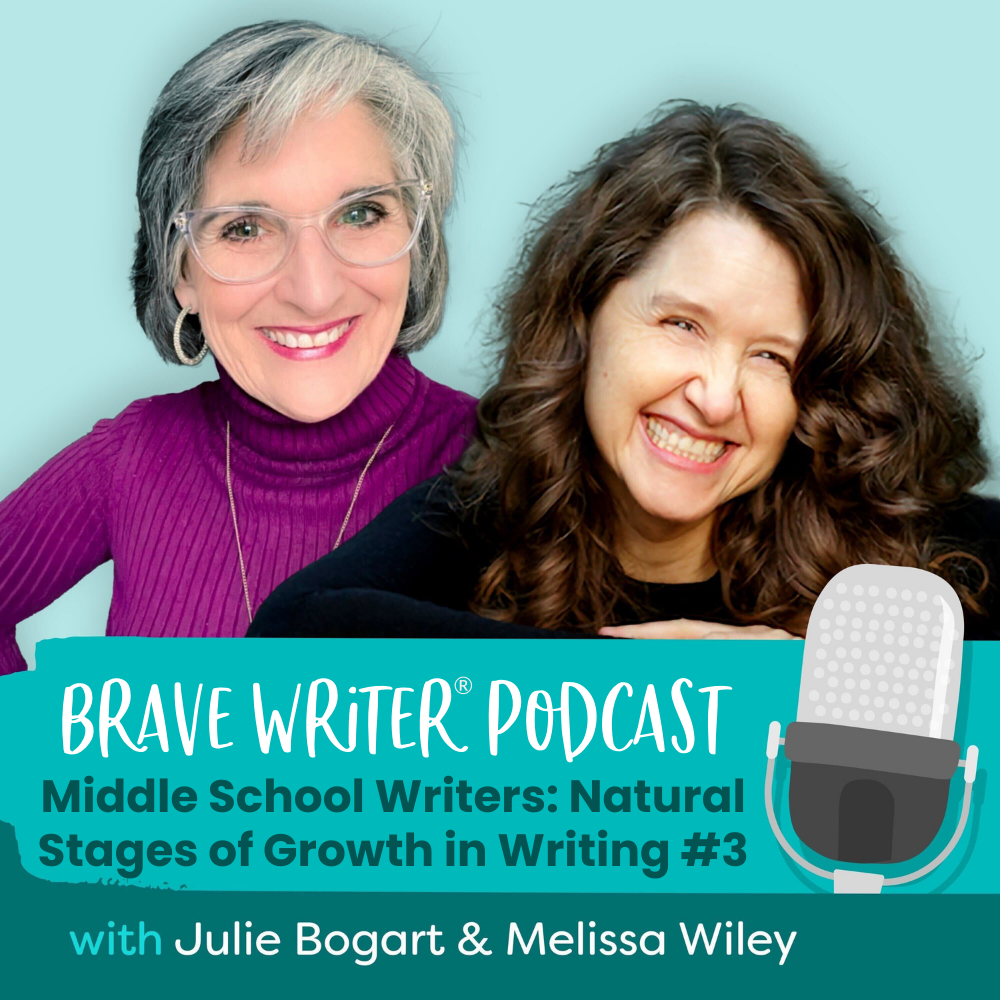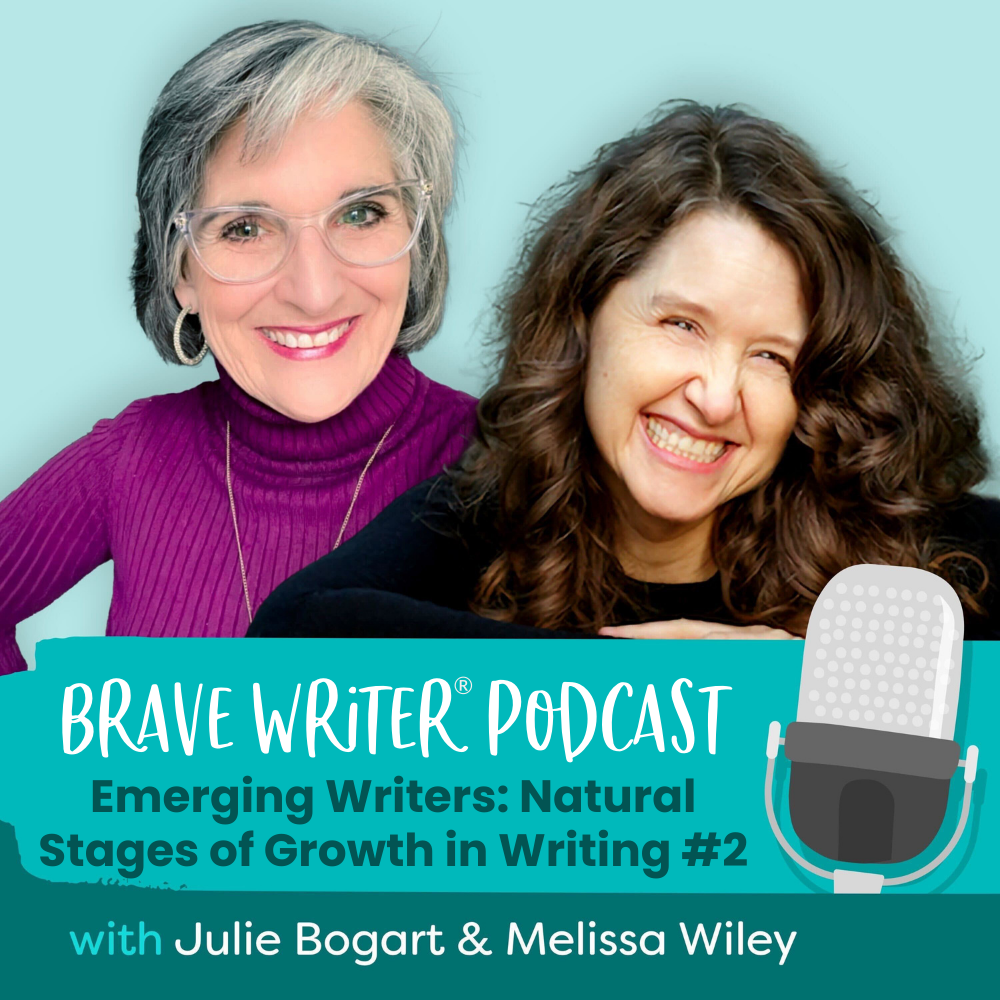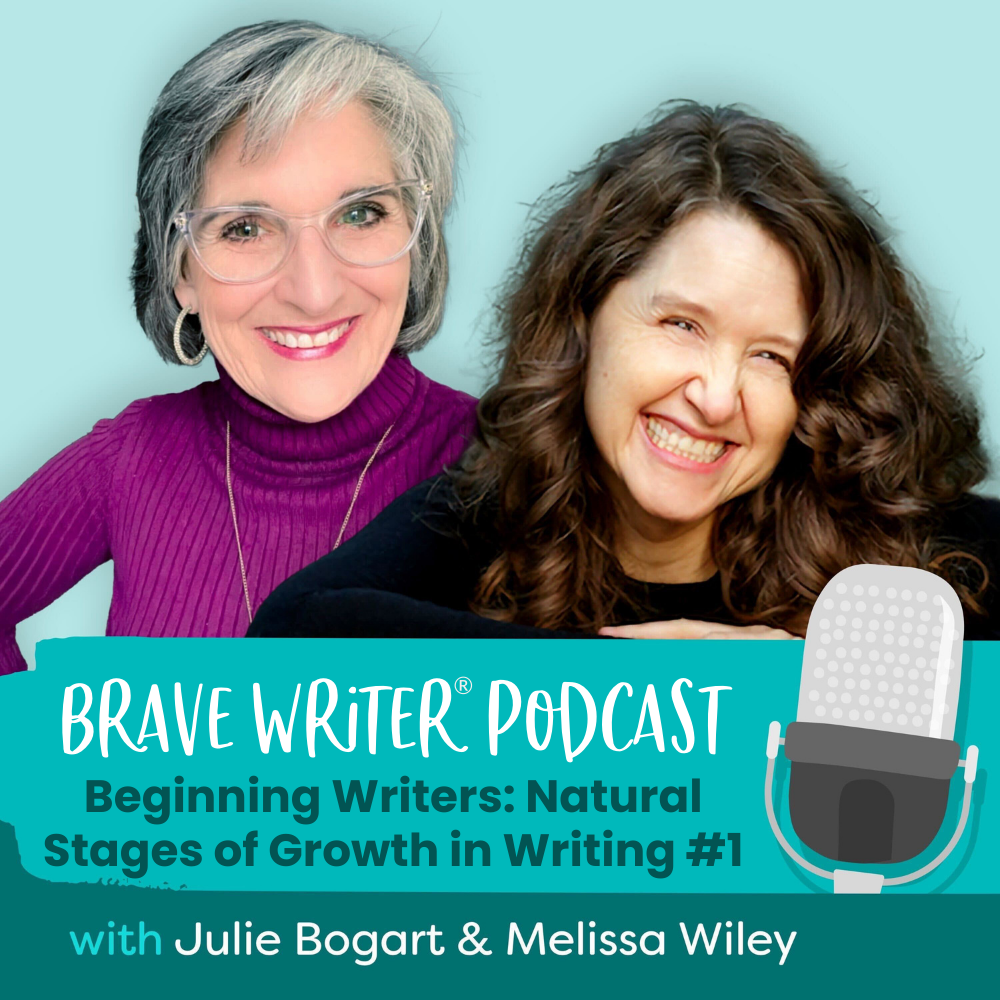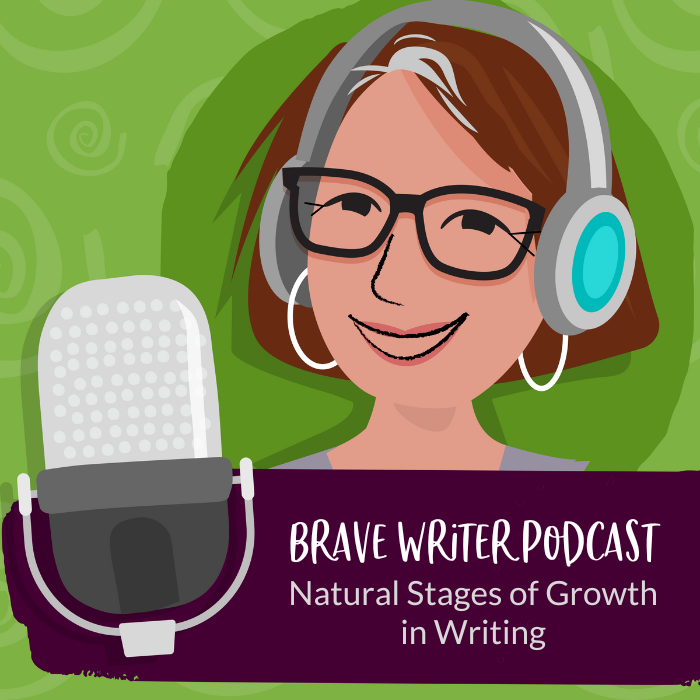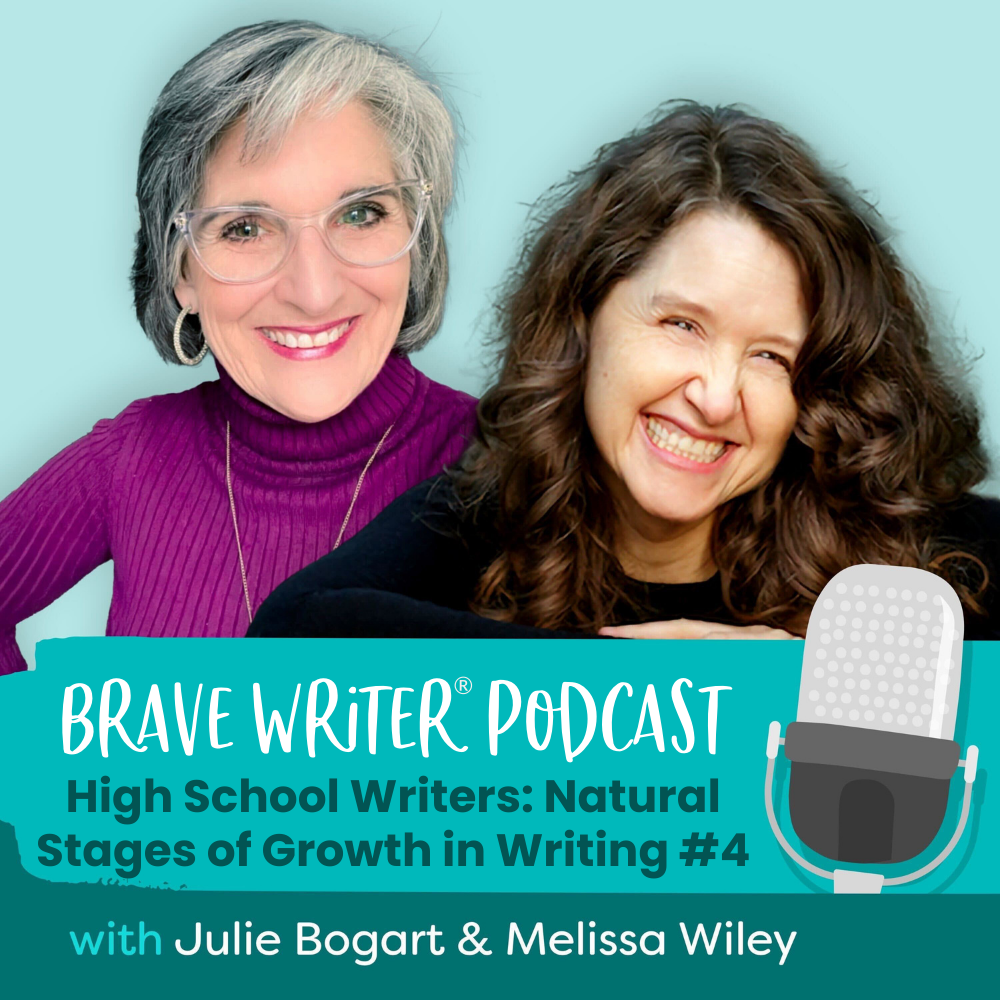
Welcome to our fourth episode in our Natural Stages of Growth in Writing series! Today we cover the High School Writers stage, broken up into two parts:
- The Great Conversation (Freshmen and Sophomores)
- The Rhetorical Imagination (College Prep)
It can feel overwhelming for homeschooling parents to teach writing at the high school level, but it doesn’t have to. We talk about keeping it simple: the basic architecture of an essay, deeply engaging with perspectives, and of course, big juicy conversations.
Be sure to check the show notes’ resources section below for links to all the writing programs we discuss in this episode, plus links to our free Olympics guide, Fall Class Registration (beginning July 22), and Brave Writer Training (sign-up ends July 31),
Show Notes
The Great Conversation (Freshmen and Sophomores)
At this stage, kids become aware that they are studying the great thoughts and research of other people, and that they can interact with that through their own writing.
Architecturally, this comes in the form of an essay:
- making an assertion,
- developing points that support that assertion,
- and finding source material to back it up.
You will find that kids are already quite good at this– they have a lot of experience arguing with you about why they should be able to play video games, etc. Now they just need to practice effectively putting their argument to the page.
Once your student gets the basic architecture of the essay down, they can then learn to translate it into different essays “flavors” like compare-and-contrast and exploratory essays.
The Rhetorical Imagination (College Prep)
While we refer to this as the “College Prep” stage, it is really for any high schooler headed out to face the world as independent adults. In this stage, your student learns how to inhabit someone else’s perspective in order to deeply engage with context and communication.
This stage can be practiced through a historical analysis of Jane Austen, picking a side in a contemporary political debate, or even writing funny group texts to their peers. The key is developing their ability to hold multiple viewpoints at once so they can evaluate their values, roles, and interactions.
We hope you have enjoyed this Natural Stages of Growth series! Don’t forget to check out the Resource section for links to our High School Writer programs.
Resources
- Start a free trial of CTCmath.com to try the math program that’s sure to grab and keep your child’s attention.
- Make writing more enjoyable with our Tools for the Art of Writing
- Read Understood Betsy
- Here’s our free 2024 Summer Games Guide
- Sign up for Brave Writer Summer Camp
- Don’t miss the first day of Fall Class Registration on July 22
- Check out the High School Writers’ Bundle
- Learn more about the Help for High School Program
- Buy the Boomerang Year-Long Program (ages 13-14)
- Take a look at the Slingshot Year-Long Program (ages 15-18)
- Don’t forget about the Building Confidence Program (ages 11-12)
- Register for the Reading the Essay class (registration opens July 22)
- Sign up for our Text Message Pod Ring to get podcast updates and more!
- Send us podcast topic ideas by texting us: +1 (833) 947-3684
Connect with Julie
- Instagram: @juliebravewriter
- Threads: @juliebravewriter
- Twitter: @bravewriter
- Facebook: facebook.com/bravewriter
Connect with Melissa
- Website: melissawiley.com
- Substack: melissawiley.substack.com
- Instagram: @melissawileybooks
- Twitter: @melissawiley
Produced by NOVA Media


